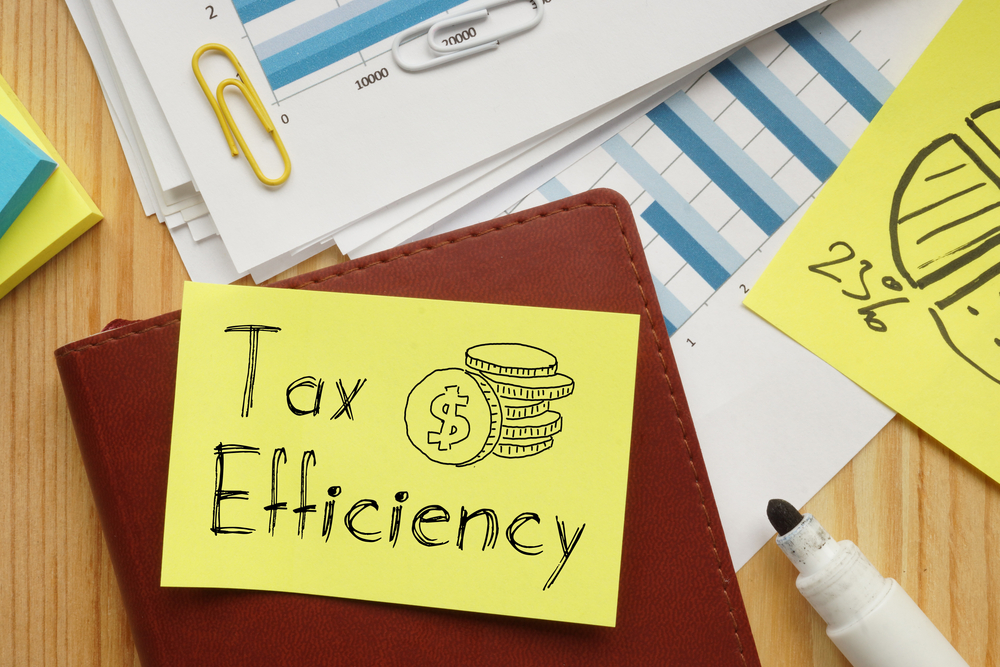Hey savvy savers, ready to take control of your finances and maximize your money like a pro? Today, we’re diving into the world of tax efficiency – because who doesn’t love keeping more of their hard-earned cash in their pocket? Get ready to uncover some smart strategies that will help you minimize your tax burden and make the most of your money. Let’s jump right in!
Leverage Tax-Advantaged Insurance Policies:
- Explore options: Look into insurance policies like whole life insurance or variable universal life insurance that offer tax-deferred growth. These policies allow you to accumulate cash value over time without paying taxes on the gains until you make a withdrawal.
- Consider tax-free withdrawals: Certain insurance policies allow you to take tax-free withdrawals or loans against the cash value of the policy. By strategically accessing these funds, you can supplement your income in retirement without triggering a tax bill.

Maximize Retirement Accounts:
- Contribute to tax-deferred accounts: Take advantage of retirement accounts like traditional IRAs or 401(k)s, which offer tax-deferred growth on your investments. Contributions to these accounts reduce your taxable income for the year, allowing you to save on taxes while building your retirement nest egg.
- Consider Roth options: Explore Roth IRA or Roth 401(k) accounts, which offer tax-free withdrawals in retirement. While contributions to these accounts are made with after-tax dollars, the investment gains grow tax-free, providing valuable tax benefits in the long run.
Diversify Your Investment Portfolio:
- Opt for tax-efficient investments: Consider investing in tax-efficient vehicles like index funds or exchange-traded funds (ETFs), which typically generate fewer taxable events compared to actively managed funds. By minimizing turnover and capital gains distributions, you can reduce the tax impact on your investment returns.
- Utilize tax-loss harvesting: Take advantage of market downturns by selling investments at a loss to offset capital gains and reduce your tax liability. This strategy allows you to strategically rebalance your portfolio while minimizing taxes.
Explore Tax-Advantaged Savings Accounts:
- Investigate health savings accounts (HSAs): If you’re eligible, contribute to an HSA, which offers triple tax benefits – contributions are tax-deductible, earnings grow tax-free, and withdrawals for qualified medical expenses are tax-free. HSAs provide a powerful way to save for healthcare costs while reducing your tax bill.
- Consider education savings accounts: Explore options like 529 college savings plans or Coverdell Education Savings Accounts (ESAs), which offer tax-advantaged growth for education expenses. Contributions to these accounts may be tax-deductible at the state level, and withdrawals for qualified education expenses are tax-free.
Stay Informed and Seek Professional Advice:
- Keep up with tax laws: Stay informed about changes to tax laws and regulations that may impact your financial strategy. Understanding the latest tax provisions can help you make informed decisions and optimize your tax situation.
- Consult a financial advisor or tax professional: If navigating the complexities of insurance and investment tax strategies feels daunting, don’t hesitate to seek guidance from a qualified professional. A financial advisor or tax professional can provide personalized advice tailored to your unique financial goals and circumstances.
Your Guide to Choosing the Perfect Insurance Coverage
Understanding Your Insurance Needs
- Assessing Your Risks: Identifying What You Need to Protect
- Evaluating Your Financial Situation: Determining Your Coverage Limits
- Considering Your Future Goals: Anticipating Changes in Your Coverage Needs
Types of Insurance Policies
- Exploring Different Insurance Categories: Life, Health, Auto, Home, and More
- Understanding Policy Features and Benefits: What Each Type of Insurance Covers
- Determining Which Policies Are Essential vs. Optional Based on Your Needs
Comparing Coverage Options
- Reviewing Policy Limits and Deductibles: Finding the Right Balance for Your Budget
- Assessing Coverage Exclusions and Limitations: Understanding What’s Not Covered
- Comparing Premiums and Policy Costs: Balancing Affordability with Comprehensive Coverage
Seeking Professional Advice
- Consulting with Insurance Agents or Brokers: Getting Expert Guidance Tailored to Your Needs
- Asking Questions and Clarifying Doubts: Ensuring You Fully Understand Your Coverage Options
- Getting Multiple Quotes and Comparing Offers: Shopping Around for the Best Value

By harnessing the power of insurance and investment vehicles for tax optimization, you can take control of your financial future and maximize your wealth-building potential. So go ahead, explore your options, and start making smart moves to minimize your tax burden and keep more of your money working for you!
